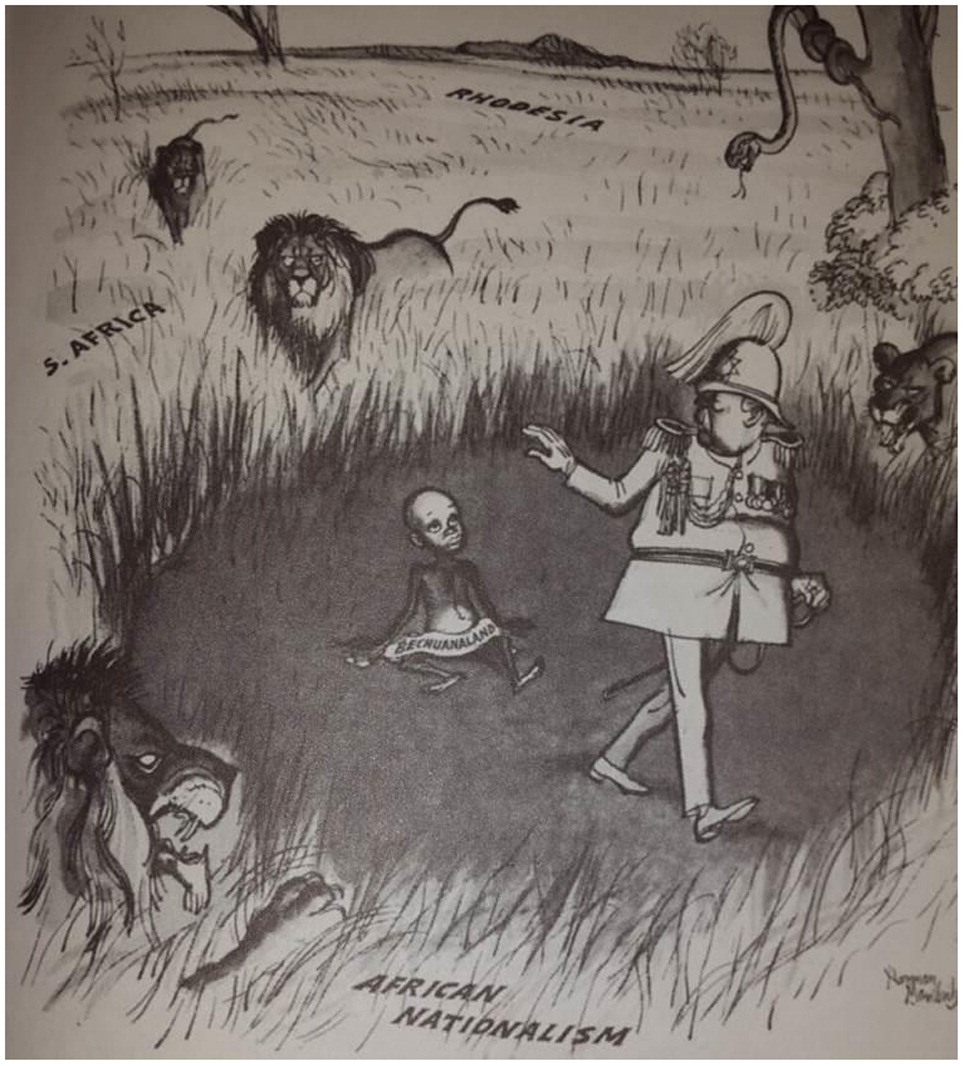 Botswana, almost entirely surrounded by extremely hostile white minority regimes, demonstrated a spirit of defiance to apartheid’s golden age. [Source: Masire]
Botswana, almost entirely surrounded by extremely hostile white minority regimes, demonstrated a spirit of defiance to apartheid’s golden age. [Source: Masire]
Botswana’s open defiance of apartheid’s ‘golden age’ was the ultimate sacrifice premised on the Setswana saying that Matlo go sha mabapi, implying that when a house catches fire the neighbouring houses are also affected. Despite the initial lack of an army, very limited resources, the geopolitical landlocked status and heavy dependence on apartheid South Africa for economic survival, Botswana maintained a principled stance against racial discrimination and exploitation of the black people in that country. Covert and overt assistance was also extended to the liberation movement. Although Botswana did suffer serious military backlash and reprisals from Rhodesia and South Africa, the country remained steadfast.
The article demonstrates that little Botswana was gallant in her approach to South Africa during the period perceived as apartheid’s monolith status in the region. This served to undermine South Africa’s foreign policy in the region. Moreover, the intimidation and reprisals Botswana suffered did not lead to the country compromising on a democratic form of government at a time when this was rare in post-independence Africa. Hence the description of Botswana as a model of democracy in Africa and an African success story at the time. Therefore, we conclude that Botswana’s intervention in the South African political milieu was not an act of foolishness but bravery inspired by moral and human rights considerations despite the backlash Botswana suffered.
Christian John Makgala & Batlang Seabo are with the Department of History at the University of Botswana.



